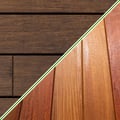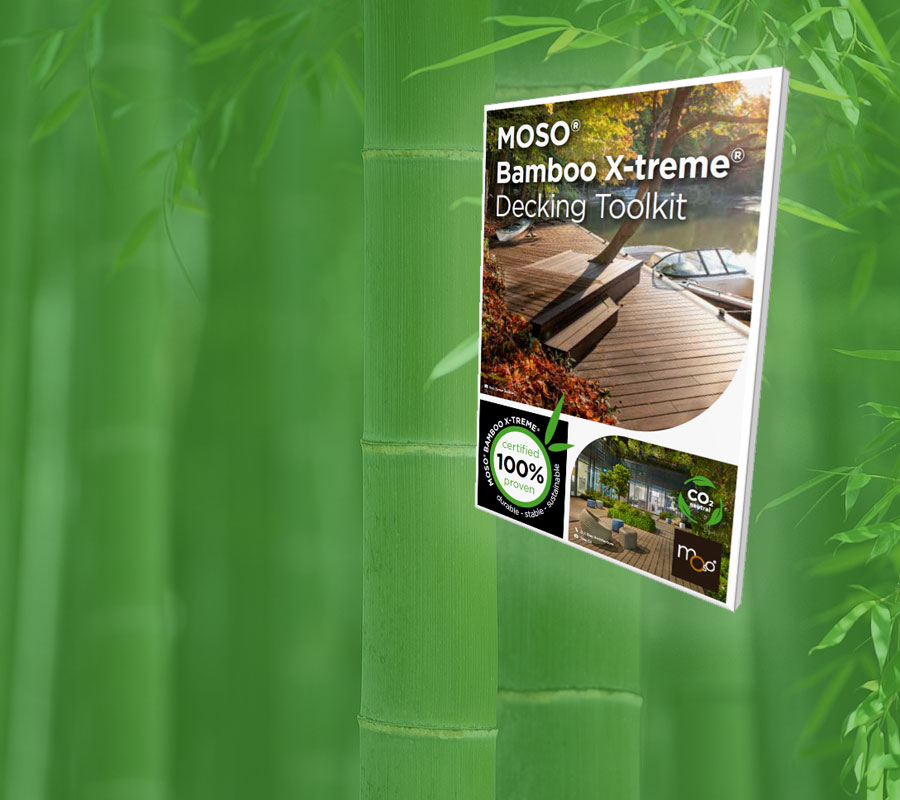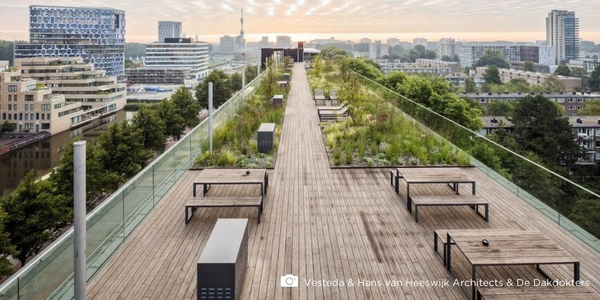The price of bamboo decking is currently on a similar level as similar sized ipe decking boards or comparable exclusive tropical hardwoods with a chain of custody certification. When determining the price of hardwood, there are many factors that come into play, as with bamboo. To understand the price differences, the following is how the price is determined:
- Bamboo decking is an engineered product, the costs include the raw material (stems) and the production (thermo treatment, compression and profiling) process, whereas wood products involves tree felling and profiling.
- The price of wood highly depends on the market demand and the supply in multiple tropical countries.
What factors define the price of bamboo and wood decking?
That being said, it is good to understand the value versus the price for bamboo and wood.
Supply and demand define the price of bamboo and ipe decks
Arguably the most important factor that determines the price of wood is the demand. As the demand increases faster than the supply, generally, the price does too. But understanding the supply of timber is complicated, as the value of trees in a forest fluctuates throughout the year, and the forest or land owner is able to choose when the trees are felled. This is the supply end of the story, and the landowner will choose to fell the trees in a way and moment that is the most profitable. At the same time there needs to be a demand, forests won't be felled if the landowner believes that the timber will be difficult to sell. Though demand has been constantly increasing over the past few years for many types of timber, the supply has tightened. The supply is also directly related to other sustainability issues that also greatly affect the price of wood, like the chain of custody certification.
The demand for bamboo products, although it has seen rapid growth over the past few years, is very small compared to wood. As a result, the influence of supply and demand is more limited than with wood. Linked to the rising demand, the number of suppliers is also increasing, which is an important difference compared to tropical hardwood. With bamboo, supply can easily be influenced by adding manufacturing after harvesting the abundantly available and fast growing Moso bamboo. As an engineered product, unlike wood, it is important to check the supplier of the bamboo products to be sure about the quality of the material. .png?width=550&name=HubSpot%20Blog%20image%20%20(4).png)
Sustainable management and forestry
When purchasing hardwood, it is important to pay attention to the FSC®/PFSC® chain of custody certification and the legal sourcing of the timber. In many regions, such as South America, illegal forestry and cutting down trees without regards to the future of the forest but simply the quick dollar of selling lumber, is still an issue. Which is why certifications and organisations like FSC® are so important, to ensure stricter forest management and a sustainable approach to the timber industry. In general, by using certified wood, you can be sure that a new tree is being planted to replace the tree that was cut down for the needed timber.
Bamboo forests are more sustainably managed by default, because of the agricultural kind of harvesting. However, bamboo products are also available with FSC® certification, which shows the exact source of the materials, although the bamboo stems will regrow automatically. The bamboo FSC® certification is mainly available to allow customers to gain credits in green building systems, or to obey local building codes that won’t allow wood-like products without a chain of custody certification.
It is easy to understand that a chain-of-custody certification, with all kinds of administrative steps, increases the price of any material. On the other hand, by sustainably managing forests there will be more material available in the future. More about the sustainability of bamboo here.
Quality of the wood and bamboo decking
Another factor to define if the material is worth the money is the beauty of the deck. Hardwoods, such as ipe and cumaru, will create an eye catching element to any garden or landscape, much like bamboo, and this is something else that many are willing to pay for. High quality wood adds a touch of elegance, natural beauty and pure “wow” factor to the garden or landscape that is worth spending more money on. With tropical hardwoods, each board of decking can be different, since each tree is different and boards can be cut from all parts of the tree. For that reason, it is important to buy wood from a trustworthy company that purchases and sells the best quality hardwood.
Since bamboo decking is an engineered product the difference from board to board are far less compared to wood. However, it’s important to ensure that you buy the right quality bamboo decking that fulfils your expectations in terms of durability, sustainability and looks. More about how bamboo products are made here.
Environment friendly wood or bamboo deck boards
For the more environmentally conscious buyer, the CO2 storage of wood also plays a role in the decision phase. As different trees grow at different speeds, to different sizes, this all influences the carbon storage in the ultimate material and thus in your deck. Not only the storage, but the renewability of a wood may also play a role, as trees that are only mature after a very long time are considered to be a less environmentally friendly option when used as timber. Taking a practical example, where a bamboo stem will mature after 4-5 years and continue growing from the mother plant as long as the forest is sustainably managed, a deck with a 25 year guarantee will have grown back 5 times during the warranty period. There is simply no hardwood that can match this growth rate. The CO2 storage and the growth rate do not have a direct influence on the price in dollars or euros, but this strongly influences to the overall value of the decking.
Durability and Use Class certification for decking
The durability of timber can be compared based on the Durability and Use Class. European standards define how these classifications are tested. As wood has been around for longer than bamboo, the classifications are more extensive and some are yet to be tested on bamboo. Bamboo X-treme® is tested extensively and the classification is on the same level as the best suitable hardwoods for decking, defined as Durability Class 1 and Use Class 4. More about Bamboo X-treme® here.
More thoughts on the price of bamboo and ipe decking
These are only some of the factors that influence the price of timber and bamboo, as it is also influenced by politics, domestic demand, inflation, export distance, exchange rates and a whole bunch of other factors that also influence many other products on our market. The most recent game changer is COVID-19, which has led to extreme increases in timber prices. Some reports expect a 30% price increase of some timbers in the coming year, as COVID-19 has directly influenced the supply while the demand has skyrocketed, with many people spending their money on their homes rather than a holiday. As of 2022, this much is still very much true.
Ultimately, there are a lot of factors that influence the price of timber and the industry itself is rather complicated, which means that the price of wood fluctuates. Hardwood from sustainable forests is comparable to the price of bamboo in many cases. Special attention needs to be paid to different factors to ensure that the correct hardwood deck is bought, without harming the environment by aiding illegal logging. To understand more about the production of MOSO® Bamboo Products read this blog about sustainable decking production.
Or compare more decking materials with our decking comparison tool and discover all the most important matters you need to know about different decking materials in one place.



.jpg?quality=high&width=900&height=450&name=Bamboo%20X-treme%20Decking%20blog%20header%20%20(3).jpg)








